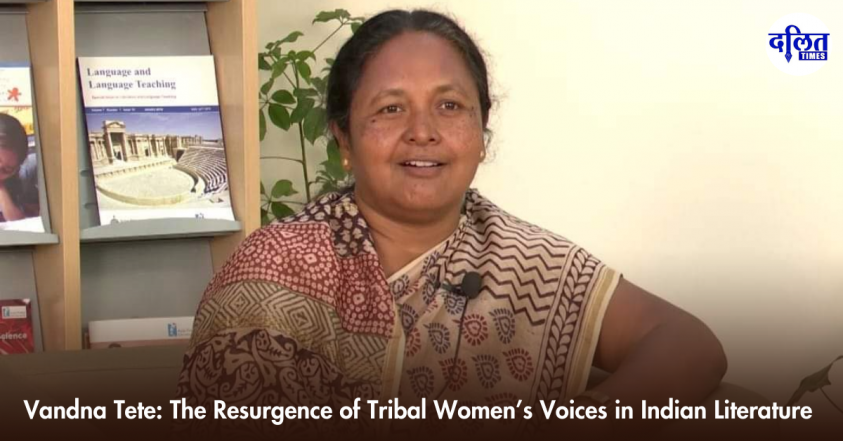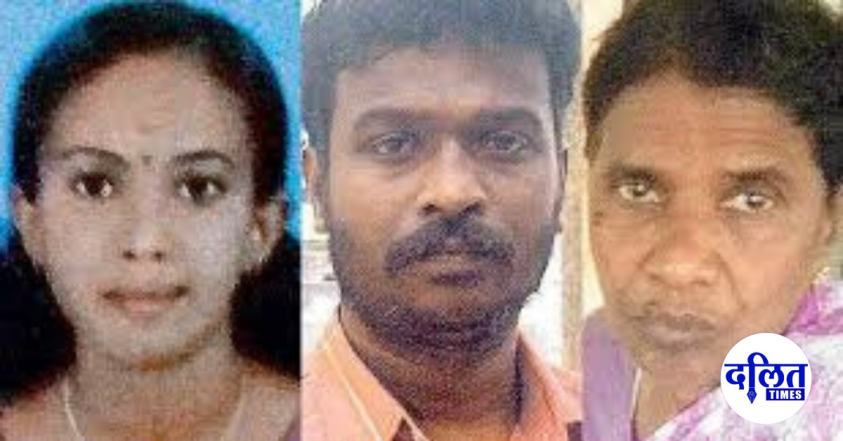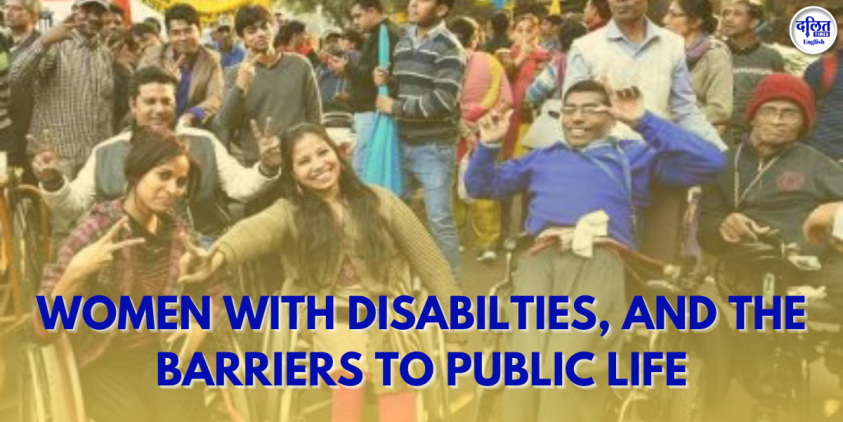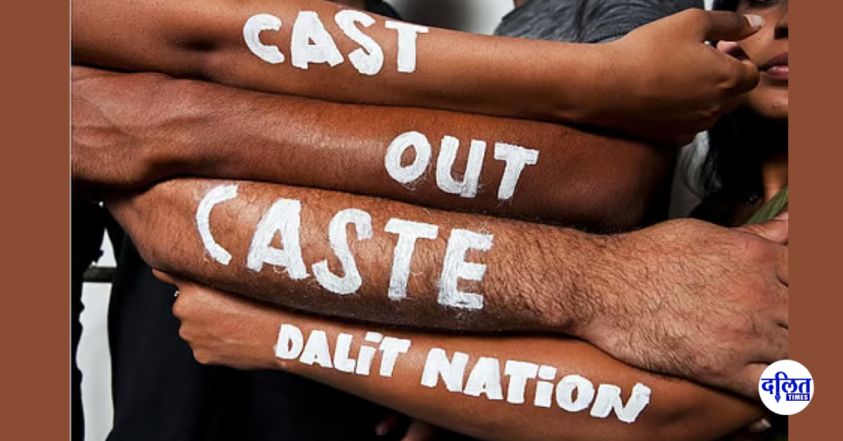Scheduled Tribe literature offers a profound exploration of life’s struggles, yet it is not framed from a perspective of victimhood. Instead, these narratives celebrate traditional resilience amidst ongoing infringements of rights and emphasize a deep, intrinsic connection to “Jal, Jangal, Jameen, jeevan”—water, forest,land and life. A prominent feature of this literary corpus is the portrayal of the formidable strength of Scheduled Tribe women. Historically, these women have endured various forms of violence. Notably, in the 19th century, the Santhals and other tribes were among the first to protest against colonial rule, especially during railway expansions, deforestation and development that encroached upon their land rights. Over the past two centuries, narratives of resistance and assertive voices have been integral to Scheduled Tribe traditions, with women playing pivotal roles.
Literature has long been a battleground where dominant voices dictate whose stories are told, who gets to speak, and whose experiences matter. In India, tribal women have historically been among the most silenced voices, enduring the twin burdens of caste-based and gendered oppression. Their narratives have often been ignored, marginalized, or distorted, overshadowed by the weight of patriarchy and societal hierarchies. However, in recent years, a powerful wave of tribal women writers has emerged, reclaiming their space, rewriting their stories, and compelling the world to listen. These women are not merely storytellers but defiant voices challenging systems that have silenced them for generations. Their work represents a radical assertion of identity, truth, and resistance.
Also Read : Case of Alleged Caste Discrimination at IISc: Legal and Institutional Developments
For far too long, Indian literature has been predominantly shaped by upper-caste voices, which have monopolized the national discourse. As a result, the lived experiences of tribal women were pushed to the margins, their struggles rendered invisible in mainstream literary narratives. Yet, their writing today not only conveys the pain of marginalization but also serves as a testament to their resilience, strength, and unyielding spirit.
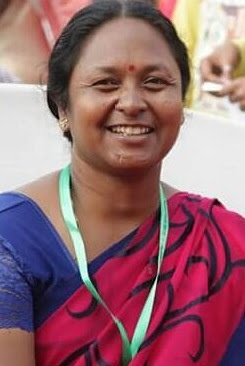
Tribal women authors such as Vandna Tete, Nirmala Putul Murmu, Susheela Samad, Alice Ekka, Temsula Ao, Usha Kiran Atram, Pushpamma, Sindhu Kali Cheenkrl, Seena Thachangadu, and Jacinta Kerkett, among others, are redefining the literary landscape. They are not only sharing personal experiences but also mounting a radical challenge to the power structures that have historically suppressed their voices. Their works disrupt conventional narratives, spotlighting issues that have long been neglected or misrepresented. By taking centre stage, these writers ensure that their voices are heard, their stories are valued, and their communities are acknowledged. Their rise signals a transformative shift in Indian literature—one where the voices from the margins are no longer silenced but celebrated and empowered.
Vandna Tete: A Trailblazer in Tribal Literature
“We Indigenous people utilize this melodic language in various forms and manners, which together shape our oral heritage—our spoken literature. This is why we, as Indigenous communities, refer to this shared legacy, encompassing the verbal narratives of our forebears alongside contemporary written literature, as orature. Furthermore, orature should not be classified as ‘folk literature.”
Also Read : Ramabai Ambedkar: A Silent Social Reformer
“Without comprehending the essence of language, its interconnections, the harmony of its dialogues, and its inherent contradictions, it is challenging to grasp the oratory tradition, Indigenous ancestral literature, and its contemporary creations. Evaluating them through the lens of so-called refined modern literature, or based on the aesthetic standards of Hindi literature and Indian cultural norms, proves futile.”- Vandana Tete
Vandana tete’s major published works are Pursha Ladake(2005), Kiska Raj Hai(2009), Jhargkhand : Ek Antaheen Samargatha(2010), Asur Sahithyakar Aur Naye Shakshatkar(2012), Aadim Ragam(2013), Adivasi Sahithya :Paraampara AurPrayojan(201), Adivasi DharshanKathayein (2014), Adivasi harshan Aur Sahithya (edited) (2015), Vachikta Adivasi Sahithya evam Saundaryabodh(edited) (2016), Lokpriya AdivasiKahaniyan (edited) (2016), Lokpriya Adivasi Kavithayein (edited)(2016), Pralap( The first anthology of the poems in Hindi by Adivasipoetess Sushila Samad, published in 1935)(edited((2019), Hindi Ki Arambhik Adivasi Kahaniyan(edited) (2020).
Vandana Tete, born at Simdega, Jharkhand on September 13, 1969, is a distinguished tribal writer, poet, publisher, and activist. Vandana was born into a Kharia Adivasi family. Her mother, Rose Kerketta, is a renowned Adivasi writer and educator. Due to her mother’s job, Vandana completed her early education in several towns across Jharkhand. She earned a bachelor’s degree in Arts from Ranchi University and later obtained a postgraduate degree in Social Work, specializing in Women and Child Development, from Rajasthan Vidyapeeth. She is renowned for her advocacy of “Adivasiyat,” emphasizing the tribal philosophy and literature worldview. Tete has significantly contributed to the preservation and promotion of Adivasi culture, literature, and rights. Writing in both Hindi and Kharia, she has emerged as a pioneering voice in Indian literary circles, dedicated to amplifying the narratives of tribal communities and contributed to the preservation and promotion of Tribal culture.
Also Read : Kshama Sawant- American member of the council- ground-breaking legislation- ban caste-based discrimination
Tete’s profound contributions to Adivasi literature are marked by her groundbreaking analysis of its traditions. She has introduced an innovative classification system that illuminates the diversity and richness of Adivasi writing. Her system categorizes the literature into three distinct segments, each offering a unique lens through which to explore the landscape of indigenous storytelling. Through her scholarly work and creative endeavors, Vandna Tete has not only highlighted the literary heritage of tribal communities but also challenged conventional frameworks that have historically overlooked their voices. Her efforts stand as a testament to the power of literature as a tool for cultural preservation and resistance. A relentless champion of Adivasi identity and creativity, Vandna Tete continues to inspire readers and writers alike, cementing her legacy as a trailblazer in Indian literature.
(Adv. Bindu Ammini, Supreme Court of India and Legal Advisor of Dalit Times)
